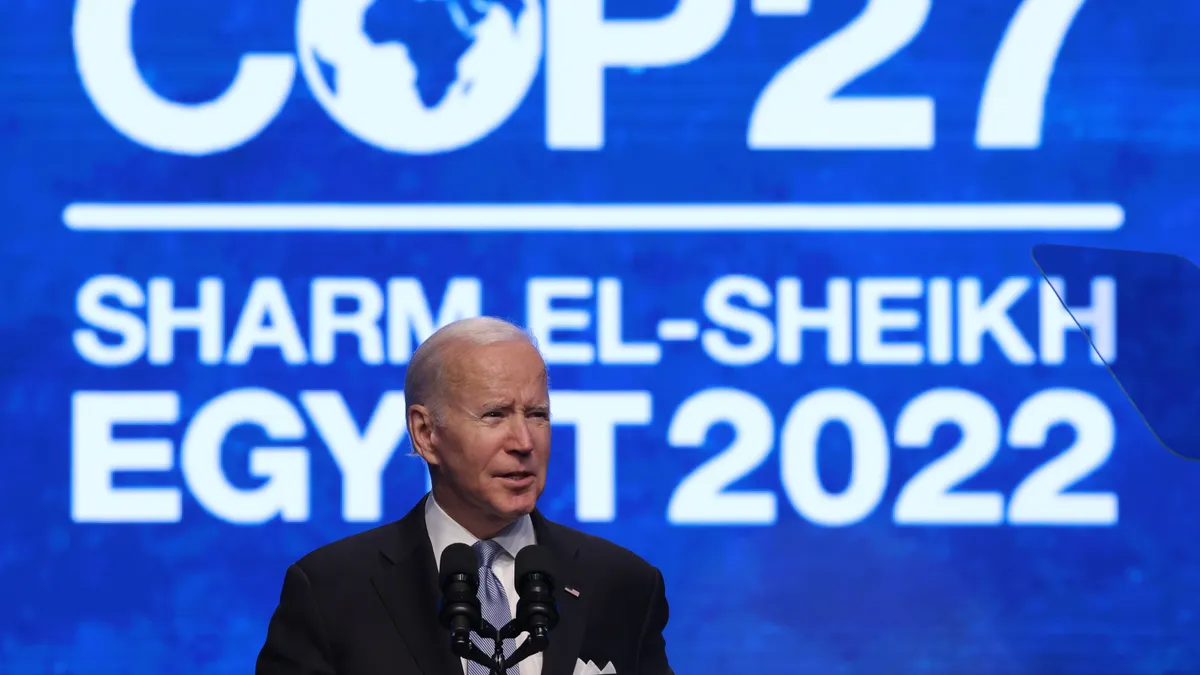The United States, one of the world's largest buyers of goods and services, last week announced a set of new rules for suppliers as it seeks to meet sustainability goals.
The Biden-Harris administration’s Federal Supplier Climate Risks and Resilience Proposed Rule would require major federal contractors and suppliers to set emissions reductions goals aligned with the Paris Agreement, and publicly disclose their greenhouse gas emissions as well as climate-related financial risks, according to a Nov. 10 White House fact sheet.
“The United States became the first government to require that our major federal suppliers disclose their emissions and climate risks, and set targets for themselves that are aligned with the Paris Agreement,” Biden said during COP27, the global climate conference taking place in Egypt this month. “As the world’s largest customer, with more than [$630 billion] in spending last year, the United States government is putting our money where our mouth is to strengthen accountability for climate risk and resilience.”
Under the proposed action, federal contractors and large suppliers may have to disclose scope 1, scope 2 or scope 3 emissions, depending on annual federal obligations. Scope 1 includes any direct emissions from the company, such as controlled facilities, while scope 2 includes emissions associated with purchased or acquired energy. Scope 3 are all emissions throughout the value chain that are not categorized in scope 2, including procurement and travel.
Climate goals for federal suppliers vary by size of contract
Whether it’s the federal government or a private company, many purchasing organizations are keying into supplier emissions as part of broader sustainability goals.
But others are hesitating to implement plans as they weigh requirements and costs, Simon Geale, executive vice president of procurement at supply chain consultancy Proxima, said in an email to Supply Chain Dive.
"The hidden reality is that many more are not, because they are not feeling the pressure and in many cases are not sure what will be required of them," Geale said.
The proposed action is part of Biden’s Federal Sustainability Plan, which aims to achieve net-zero emissions in procurement by 2050, covering roughly 85% of federal supply chain-related emissions. The federal supply chain is currently estimated to emit more than twice the amount of emissions from operating the Federal Government’s 300,000 buildings and 600,000 vehicles, according to the fact sheet.
The proposed action is subject to public comments, which must be submitted to the Regulatory Secretariat Division before Jan. 13, 2023.














